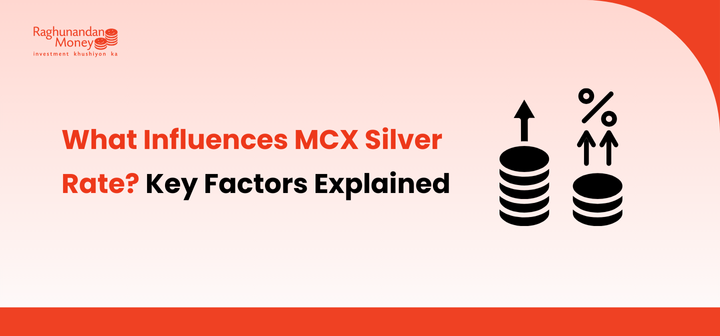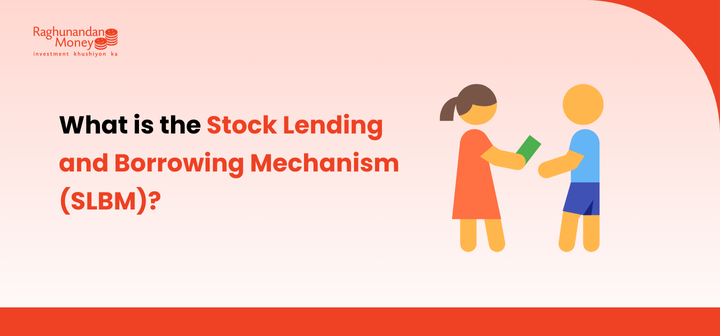What is Algo Trading ?
Algorithmic trading, commonly known as algo trading, revolutionizes financial markets by deploying computer algorithms to execute trading orders. These algorithms comprise predefined rules and instructions, ingeniously automating the trading process and eradicating the necessity for manual intervention.
Algo trading algorithms wield their power across an extensive array of financial instruments, spanning stocks, bonds, commodities, and currencies. With their versatility, they seamlessly accommodate trading on diverse time frames, ranging from the swift intraday maneuvers to the patient, long-term strategies.
Do algo trading really work?
Yes, algo trading can be very effective. Algo traders have access to a wide range of data and computing power that allows them to identify and execute trades more efficiently than human traders can. However, it is important to note that algo trading is not a guaranteed way to make money. Algo traders need to have a sound trading strategy and they need to be able to manage their risk effectively.
What are the advantages and disadvantages of algo trading?
Advantages-
- Higher accuracy: Free of human-made errors, such as typos or miscalculations, leading to more accurate trading decisions and better performance.
- Faster execution: Trades can be executed much faster than humans, giving traders an edge in volatile markets, where speed is essential.
- Lower costs: Reducing transaction costs by automating the trading process, saving traders money on each trade.
- Increased liquidity: Facilitating increased market liquidity, streamlining the buying and selling of securities, ensuring transactions occur at equitable prices and promoting a fair trading environment.
- Reduced risk: Helping to reduce risk by automatically following pre-defined trading rules, enabling traders to avoid making emotional decisions that can lead to losses.
Disadvantages-
- High start-up costs: Setting up and maintaining automated trading systems can be expensive due to the need for specialized hardware and software.
- Complex and technical: Automated trading can be complex and technical, requiring a good understanding of the markets and the trading process. This complexity can make it difficult for new traders to get started.
- Market manipulation: Automated trading systems can potentially be used to manipulate the markets, leading to issues like flash crashes and other problems.
- Volatility: Automated trading can amplify market volatility, which may pose challenges for traders seeking to profit.
Is algo trading profit or loss? Is algo trading profitable?
Algorithmic trading can be profitable, but it is not guaranteed. The success of an algorithmic trading strategy depends on a number of factors, including the skill of the trader who developed the strategy, the quality of the data used to train the algorithm, and the volatility of the market.
What skills are needed for algo trading?
Here are the skills needed for algorithmic trading in short:
- Quantitative analysis
- Financial market knowledge
- Programming skills
Is algo trading safe in India? Is algo trading legal in India?
Yes, algo trading is safe in India. The Securities and Exchange Board of India (SEBI) has regulated algo trading since 2008. Algo traders in India must comply with SEBI's rules and regulations, which are designed to protect investors and ensure the integrity of the markets.
Is algo trading hard?
Algo trading can be hard, but it is not impossible to learn. It requires a strong understanding of financial markets, programming skills, and risk management. Algo traders must also be able to quickly adapt to changing market conditions.
Can I do Algo Trading Free?
RMoney is a free algo trading platform that allows you to create and backtest your own trading strategies. It is a web-based platform that is easy to use and does not require any programming knowledge.
To use RMoney, you will need to create an account and then select a trading strategy from the library. You can then adjust the parameters of the strategy and backtest it on historical data. Once you are satisfied with the performance of the strategy, you can deploy it to a live trading account.
RMoney is a great way to learn about algo trading and to test your trading strategies without risking any real money. It is also a good option for experienced algo traders who want to backtest their strategies on a large dataset of historical data.
How do I start trading in Algo?
Here are the steps on how to start trading in Algo:
- Learn about trading: Before you start trading, it is important to learn about the basics of trading. This includes understanding the different types of trading strategies, the risks involved, and the software and hardware requirements for trading.
- Choose a trading platform: There are a number of different trading platforms available. You will need to choose a platform that is right for your needs and goals. Some factors to consider when choosing a platform include the cost, the features offered, and the level of support that is available.
- Develop a trading strategy: Once you have chosen a trading platform, you need to develop a trading strategy. Your trading strategy should define your trading goals, the trading instruments you will trade, and the entry and exit rules for your trades.
- Backtest your trading strategy: Once you have developed a trading strategy, you need to backtest it. Backtesting is the process of testing your strategy on historical data. Backtesting will help you to identify any flaws in your strategy and to fine-tune your parameters.
- Deploy your trading strategy to a live trading account: Once you are satisfied with the performance of your trading strategy, you can deploy it to a live trading account. When deploying your strategy, you need to carefully manage your risk and to monitor your results closely.
Which coding is used in algo trading?
There are a number of programming languages that are commonly used, including:
- Python: Python is a popular and versatile language that is easy to learn and use. It is also very efficient, making it a good choice for high-frequency trading.
- Java: Java is another popular language that is known for its reliability and security. It is also a good choice for algo trading because it is platform-independent, meaning that it can be run on any computer.
- C++: C++ is a powerful language that is well-suited for algo trading that requires high performance. However, it is also a complex language that can be difficult to learn and use.
- R: R is a statistical programming language that is often used for data analysis and backtesting. It is not as commonly used for live trading as other languages, but it can be a good choice for algo trading that requires complex mathematical calculations.
Conclusion :
Algorithmic trading automates the trading process using computer algorithms. It offers advantages such as higher accuracy, faster execution, lower costs, increased liquidity, and reduced risk. While profitable, success is not guaranteed and depends on factors like trader skill and market conditions.
In India, algorithmic trading is safe and legal, regulated by SEBI. Beginners can explore free platforms like RMoney to learn and test strategies without risking real money.
To start algorithmic trading, learn the basics, choose a suitable platform, develop a strategy, backtest, and deploy carefully. Python, Java, C++, and R are common coding languages used in algorithmic trading.
The best algorithm depends on market conditions, and popular ones include moving average crossover, Bollinger bands, RSI, support and resistance, and Fibonacci retracement. Algorithmic trading offers exciting opportunities but requires knowledge and adaptability to thrive.

Stock Trading Now trade in ₹9 Per Order or ₹ 999 Per Month Plans.
Future & Options Access F&O contracts with advanced tools for hedging and speculation.
Currency Trading Trade in major currency pairs and manage forex exposure efficiently.
Commodity Trading Diversify Trading with MCX & NCDEX by Trading in Gold, Silver, Base Metals, Energy, and Agri Products.
Margin Trading Funding Boost your buying power with upto 5X, Buy now Pay Later
Algo Trading Back test, Paper Trade your logic & Automate your strategies with low-latency APIs.
Trading View Leverage Trading View charts and indicators integrated into your trading platform.
Advanced Options Trading Execute multi-leg option strategies with precision and insights.
Stock Lending & Borrowing Earn passive income by lending stocks securely through SLB.
Foreign Portfolio Investment Enable NRIs and FPIs to invest in Indian markets with ease and compliance.
IPO Invest in upcoming IPOs online with real-time tracking and instant allotment updates.
Direct Mutual Funds 0% Commissions by investing in more than +3500 Direct Mutual Fund Scheme.
Corporate FDRs Earn fixed returns with low-risk investments in high-rated corporate fixed deposits.
Stocks SIPs Build long-term wealth with systematic investment plans in top-performing stocks.
Bonds & NCDs Access secure, fixed-income investments through government and corporate bond offerings.
Depository Services Safely hold and manage your securities with seamless Demat and DP services with CDSL.
Journey Tracing our growth and milestones over time.
Mission & Vision Guided by purpose, driven by long-term vision.
Why RMoney Platform Smart, reliable platform for all investors' needs.
Management Experienced leadership driving strategic financial excellence.
Credentials Certified expertise with trusted industry recognition.
Press Release Latest company news, updates, and announcements.
Testimonials Real client stories sharing their success journeys.
7 Reasons to Invest Top benefits that make investing with us smart.
SEBI Registered Research Trusted insights backed by SEBI-compliant research.
Our Technology Advanced tools enabling efficient online trading.
Calculators Access a suite of smart tools to plan trades, margins, and returns effectively.
Margin Calculator Instantly check margin requirements for intraday and delivery trades.
MTF Calculator Calculate MTF funding cost upfront to ensure full transparency before placing a trade.
Brokerage Calculator Know your exact brokerage charges before placing any trade.
Market Place Explore curated investment products and trading tools in one convenient hub.
RMoney Gyan Enhance your market knowledge with expert blogs, videos, and tutorials.
Performance Tracker Track our research performance with full transparency using our performance tracker.
Feedback Share your suggestions or concerns to help us improve your experience.
Downloads Access important forms, software, and documents in one place.
Locate Us Find the nearest RMoney branch or service center quickly.
Escalation Matrix Resolve issues faster with our structured support escalation process.
Back Office Log in to view trade reports, ledger, and portfolio statements anytime.
Account Modification Update personal or bank details linked to your trading account.
Fund Transfer Transfer funds instantly online with quick limit updation to your trading account.
Bank Details View our registered bank account details for seamless transactions by NEFT, RTGS or IMPS.
How to Apply IPO Step-by-step guide to apply for IPOs using your trading account.
RMoney Quick Mobile App Trade on-the-go with our all-in-one mobile trading app.
RMoney Quick login Quickly access your trading account through the RMoney Quick web-based trading.
RMoney Rocket Web Version Experience powerful web-based trading with advanced tools for algo traders.
RMoney Rocket Mobile Version Trade anytime, anywhere with our feature-rich mobile trading platform.




















